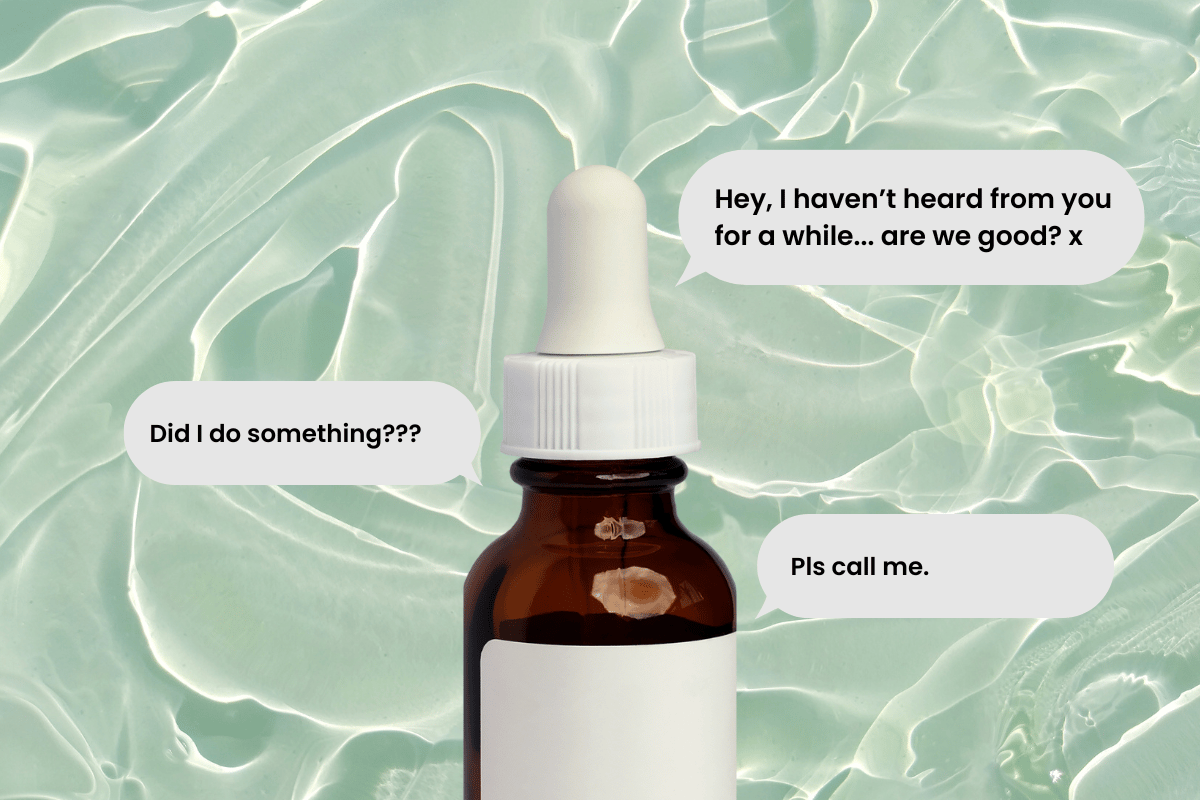
Question: What ingredient pops into your mind when you think of a hydrating serum? Chances are, it's hyaluronic acid. It is, isn't it? Totally called it.
Known as the hydrating powerhouse for all skin types, hyaluronic acid is by far the most famous and well-known ingredient in this skincare market. It's The People's serum. And the beauty shelves are positively bursting with 'em — from affordable to pricey and in-between, almost every skincare brand has a hyaluronic acid serum in their range.
But what if we were to tell you hyaluronic acid might not be all it's cracked up to be? Well, that's what happened when cosmetic doctor and founder of L'Orient Skincare, Dr Prasanthi Purusothaman (who goes by Dr Prasanthi) dropped by the You Beauty podcast.
Listen: Want to get the episode in your ears? Post continues below.
Speaking on this week's episode of The Formula, the GP and skin expert touched on whether hyaluronic acid really deserves all the glory it's been given. And you might want to sit down for this one, friend.
It's gonna hurt.
Watch: How to get better skin while you sleep. Post continues below.
Top Comments